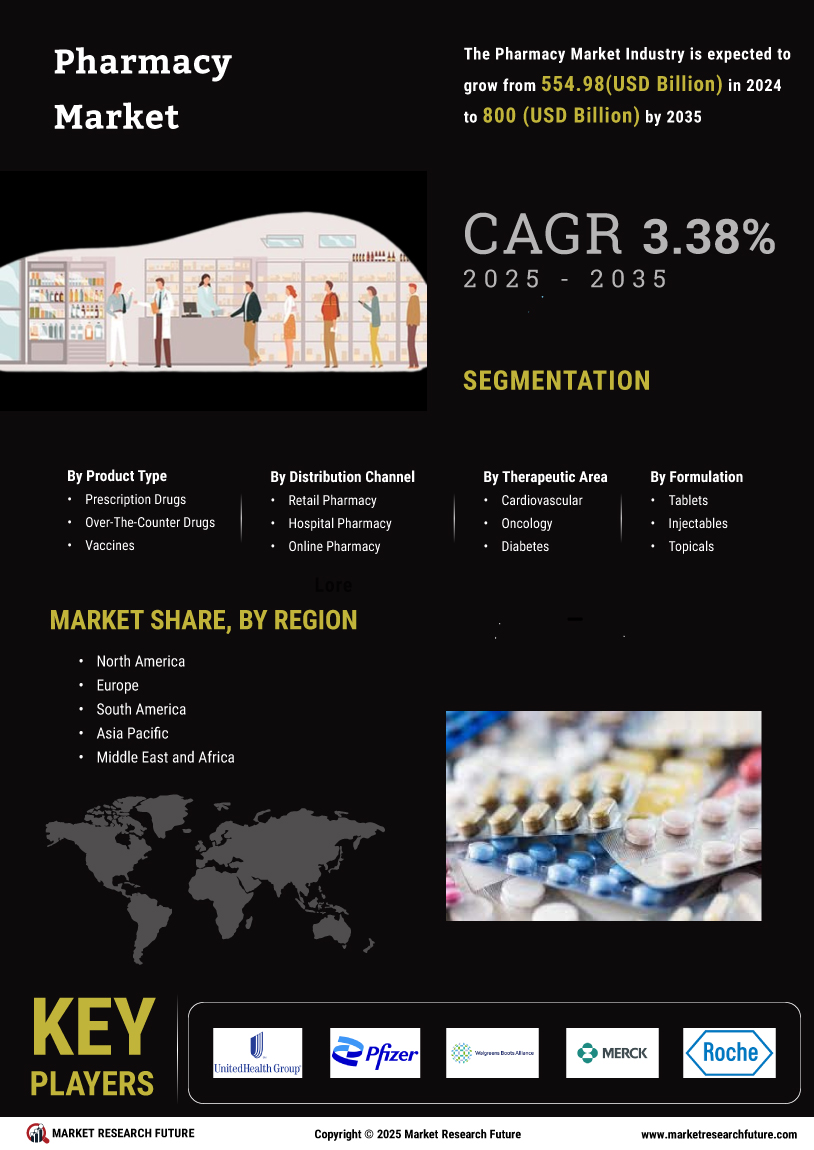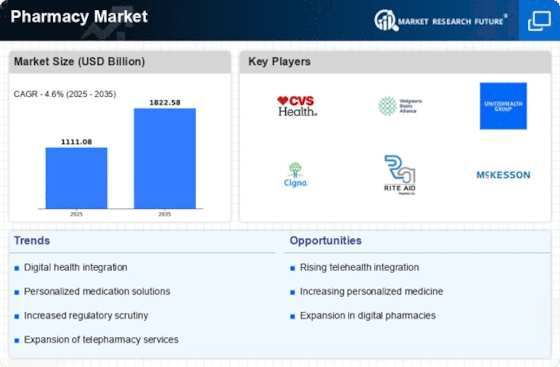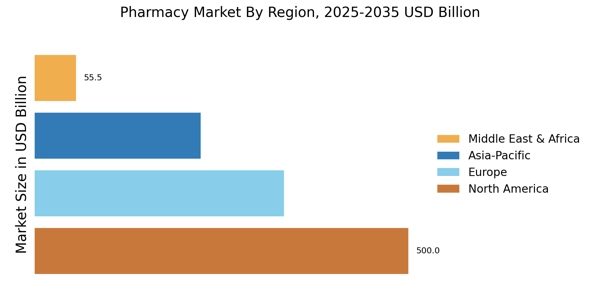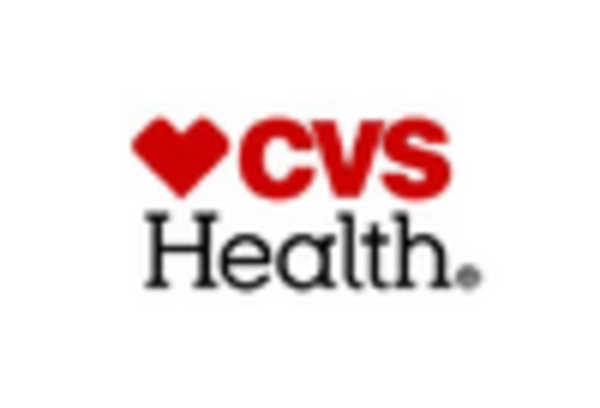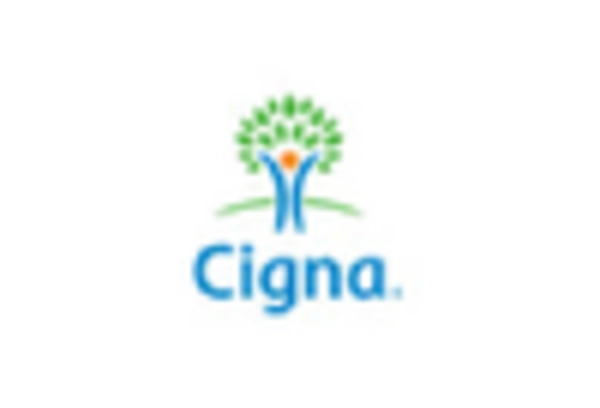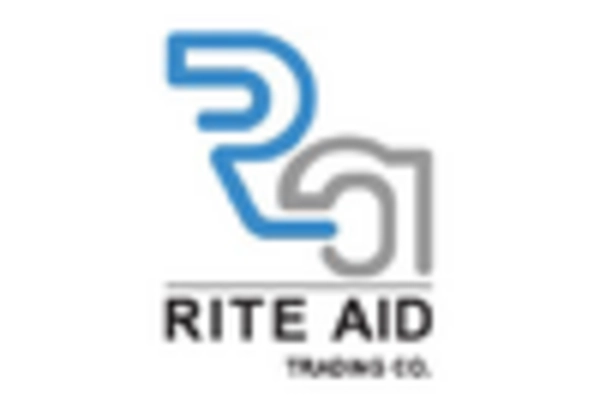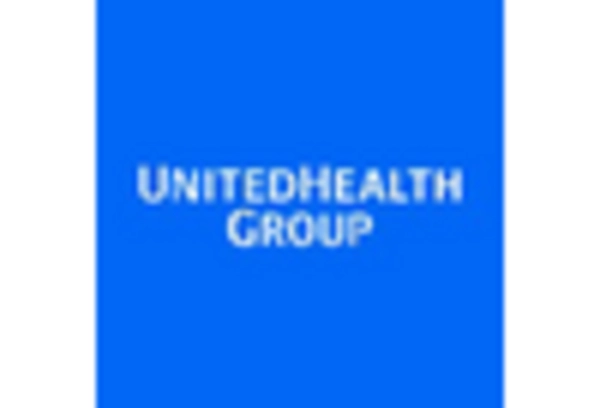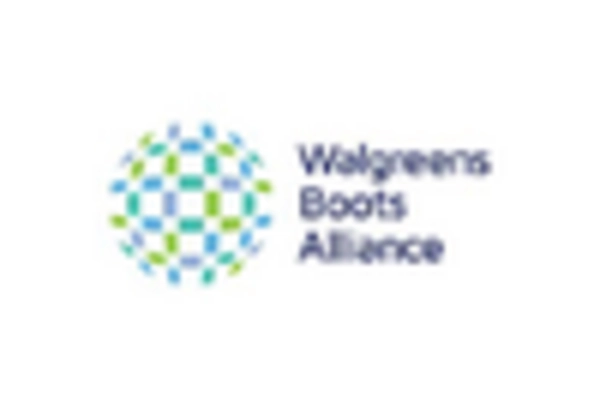Aging Population
The aging population is a crucial driver of the Pharmacy Market. As individuals age, they typically experience a higher prevalence of chronic diseases, necessitating increased medication use. According to recent statistics, the proportion of individuals aged 65 and older is projected to rise significantly, leading to a greater demand for pharmaceutical products and services. This demographic shift compels pharmacies to adapt their offerings, focusing on geriatric care and medication management. Furthermore, the Pharmacy Market must enhance its services to cater to the unique needs of older adults, including medication adherence programs and specialized consultations. The increasing life expectancy and the associated rise in healthcare needs suggest that the Pharmacy Market will continue to expand in response to this demographic trend.
Technological Advancements
Technological advancements are reshaping the Pharmacy Market in profound ways. Innovations such as telepharmacy, electronic prescriptions, and automated dispensing systems are enhancing operational efficiency and patient care. The integration of artificial intelligence and machine learning into pharmacy operations allows for improved inventory management and personalized medication therapy management. Data indicates that pharmacies adopting these technologies experience increased customer satisfaction and operational efficiency. Moreover, the rise of mobile health applications enables patients to manage their medications more effectively, fostering a more engaged patient population. As technology continues to evolve, the Pharmacy Market is likely to see further enhancements in service delivery, ultimately improving health outcomes and patient experiences.
Rising Healthcare Expenditure
Rising healthcare expenditure is a significant driver of the Pharmacy Market. As healthcare costs continue to escalate, there is an increasing focus on medication management and preventive care. Governments and private sectors are investing heavily in healthcare infrastructure, which includes pharmacies as essential components of the healthcare system. Reports indicate that healthcare spending is expected to grow, leading to higher demand for pharmaceutical products and services. This trend compels pharmacies to expand their roles, offering more comprehensive health services, including immunizations and health screenings. The Pharmacy Market must adapt to these changes by enhancing service offerings and ensuring accessibility to medications, thereby positioning itself as a vital player in the broader healthcare landscape.
Consumer Demand for Convenience
Consumer demand for convenience is a pivotal driver of the Pharmacy Market. Modern consumers increasingly seek accessible and efficient healthcare solutions, prompting pharmacies to innovate their service delivery models. The rise of online pharmacies and home delivery services reflects this trend, as patients prefer the convenience of obtaining medications without visiting physical locations. Data suggests that pharmacies offering digital services experience higher customer retention rates and satisfaction levels. Additionally, the integration of mobile applications for prescription refills and medication reminders caters to the fast-paced lifestyles of consumers. As the demand for convenience continues to grow, the Pharmacy Market must evolve to meet these expectations, ensuring that services are not only accessible but also user-friendly.
Regulatory Changes and Policies
Regulatory changes and policies significantly influence the Pharmacy Market. Governments worldwide are implementing new regulations aimed at improving medication safety, accessibility, and affordability. These changes often require pharmacies to adapt their practices, ensuring compliance with evolving standards. For instance, recent policies promoting the use of generic medications have impacted pricing strategies within the Pharmacy Market. Additionally, regulations surrounding telehealth and pharmacy services are expanding, allowing pharmacies to offer more comprehensive care. The Pharmacy Market must remain agile in response to these regulatory shifts, as they can create both challenges and opportunities for growth. By aligning with regulatory requirements, pharmacies can enhance their service offerings and improve patient outcomes.
